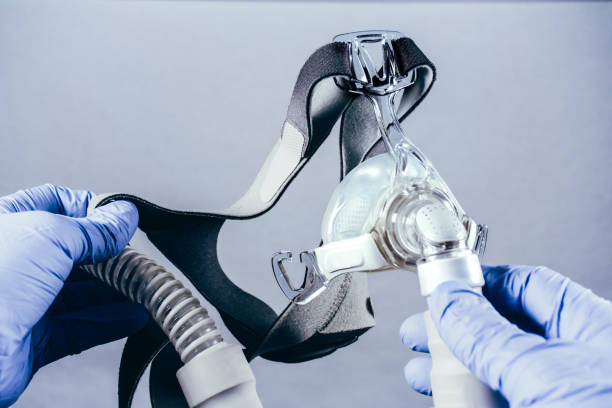CPAP (continuous positive airway pressure) is a sleep apnea treatment involving using a machine to deliver pressurized air through a mask or nasal cannula to help keep the airways open during sleep. While CPAP therapy is generally considered safe and effective, there have been instances of CPAP machine recall due to safety concerns.
Key takeaways:
- A number of ventilators, CPAP machines, and BiPAP machines manufactured by Philips Respironics have been recalled owing to possible health hazards.
- Some electronic devices that are already in your body, like pacemakers, might not work well with the magnetic clips on the masks.
- Philips Respironics is calling back more than 17 million sleep apnea masks that it has made.
If you or someone you know uses a CPAP machine, it’s important to be aware of any potential recalls or safety concerns. Reading this article will provide valuable information about why machines may be recalled, what you can do if you own a recalled device, and how to protect yourself and others from potential hazards.
Take the time to learn more about recalled CPAP machines now so that you can ensure your safety and the safety of those around you.
Why is a CPAP Machine Recall Happening?

Machines can be recalled for various reasons, including safety concerns, defects, or non-compliance with regulations. A machine is recalled when the manufacturer or regulatory agency believes it may harm users or the public and requests its return or repair. This is usually done to prevent accidents and assure product safety and compliance.
There are several reasons why a machine might be recalled, including:
- Safety concerns: Machines with safety defects that potentially injure users may be recalled. This could be due to a design flaw, manufacturing error, or another issue.
- Defects: If a machine is found to have a defect that affects its performance or functionality, it may be recalled. This could be due to a problem with the machine’s materials or the manufacturing process.
- Non-compliance with regulations: It may be recalled if a machine fails to meet the required safety standards or regulations. This could be due to issues with the design or construction of the machine or with the materials used.
The manufacturer or regulatory agency will typically issue a recall notice to recall a machine, which provides details about the problem and instructions for returning or repairing the product. Consumers who own a recalled machine should follow the instructions provided in the recall notice to ensure the safety of themselves and others.
Why is there a Phillips CPAP Machine Recall?
Philips CPAP recall several ventilators, CPAP machines, and BiPAP machines in June 2021 due to the possibility that they posed a threat to patients’ health. It is possible for the foam made of polyester-based polyurethane (PE PUR), used in these devices, to dampen vibration and sound and degrade. Headache, skin, or eye irritation asthma Testing by Philips also found that the foam can produce unsafe chemical levels. These volatile organic compounds are released as gases.
If this occurs, the individual using the device runs the risk of inhaling or swallowing black particles of foam and some substances that are not apparent to the naked eye.
Not all of Philips’ breathing devices are included in the recall at this time. Roughly eighty percent of the impacted equipment are continuous positive airway pressure (CPAP) machines, and about twenty percent are ventilators.
Affected Devices
A-Series BiPAP A30 (Ventilator), A-Series BiPAP A40ices (Ventilator), A-Series BiPAP V30 (Auto Ventilator), and OmniLab Advanced+.
How will Philips Respironics solve this problem?
Philips Respironics has upgraded sound abatement foam with a new material that will not be affected by these issues. Initially these measures require some regulatory hurdles. Philips Respironics provides the regulatory agencies with the necessary information on its planned correction and a third-party vendor coordinates this recall effort.
Possible Health Risks From Recalled CPAP Devices
Several potential health risks may be associated with recalled CPAP or BiPAP devices. These risks may vary depending on the device’s specific issue and the problem’s severity. Some potential health risks associated with recalled CPAP or BiPAP devices include:
Injury Or Harm From Malfunctioning Or Defective Devices
If a device is recalled due to a safety defect or malfunction, it could cause injury or harm to the user. This could be due to electrical problems, issues with the device’s materials or construction, or other problems.
Reduced Effectiveness OfTreatment
A device that is recalled due to a problem may not be able to provide the intended level of treatment. This could result in reduced effectiveness of treatment and worsen the user’s condition.
Risk Of Infection Or Illness
If a device is recalled due to problems with materials or construction that could lead to contamination, there may be a risk of infection or illness. This could be due to issues with the device’s filters, tubing, or other components.
Suppose you are concerned about any potential health risks associated with a recalled CPAP or BiPAP device. In that case, it’s important to follow the recall notice’s instructions and stop using the device until it has been repaired or replaced. If you have any questions or concerns, I recommend discussing them with your healthcare provider.
Also Read: CPAP vs BiPAP Machine: Which One Is Right For You?
Practical Tips for People With Recalled Devices
If you have a recalled device, there are a few practical steps you can take to ensure your safety and protect yourself from potential hazards:
Follow The Instructions Provided In The Recall Notice
The message will usually include how to return or repair the item and other measures. Follow these instructions carefully to ensure the device is properly repaired or replaced.
Stop Using The Device
If the recall notice indicates that the device may pose a risk to your safety, stop using it immediately. This will help to prevent any potential accidents or injuries.
Check For Updates
Keep an eye out for updates or additional information about the recall. The manufacturer or regulatory agency may provide additional instructions or information as the recall process progresses.
Keep The Recall Motice
Keep the notice in case you need to prove you addressed the recall.
Consider Reporting The Issue
Consider reporting recalled device issues to the manufacturer or regulatory agency. This can help detect any patterns or trends that may be contributing to the recall and prevent such issues in the future.
How Do I Know if My CPAP Was Recalled?

CPAP users can check Philips’ device registration and recall contact information page. This page lists all recalled machines and includes photos to help users examine their equipment.
Users and caregivers can search up the serial number of their device using a registration process that Philips has established. If you are unsure as to whether or not you have affected devices, you can use this approach.
Conclusion
The possible health risks associated with these recalled devices are serious, so it’s important to take action if your device is impacted by the recall.
If you have any questions or would like help determining whether your CPAP machine is part of the recall, we encourage you to schedule a discovery call with one of our specialists.
We can help put your mind at ease and ensure you have the information and resources you need to stay safe and healthy.
Frequently Asked Questions
Are There Any CPAP Masks Being Recalled?
- Wisp and Wisp Youth Nasal Mask
- Therapy Mask 3100 NC/SP
- DreamWear Full Face Mask
- Amara View Full Face Mask
- DreamWisp Nasal Mask
What to Do If Your CPAP Has Been Recalled
The Food and Drug Administration advises patients who are using a Philips CPAP machine that has been recalled to review their treatment options with their primary care physician.
Can I Just Remove The Foam From The Device?
No, you can’t take the foam off of the CPAP machine without first breaking it.
Will My Disability Benefits Change If I Stop Using My CPAP Or BiPAP Machine?
It is possible that stopping the use of a CPAP or BiPAP device could impact your disability benefits. This depends on your case, including why you stopped using the device, your disability, and your benefits program.
Is CPAP Considered A Medical Device
Yes, CPAP machines are considered medical devices.
What is Pe Pur Sound Abatement?
The pur sound abatement foam is what prevents your CPAP machine from being excessively noisy.
What Is the Reason For The Philips CPAP Recall?
Philips issued the recall notification due to possible health risks related to a foam used inside CPAP and mechanical ventilator devices.
Are Replacement Devices Safe?
Replacement devices from Philips use a silicone-based foam instead of the PE-PUR foam that was identified as a risk in the recall. The FDA has stated that there is a lack of detailed data about the safety of silicone-based foam.
Is your CPAP machine included in the CPAP machine recall?




